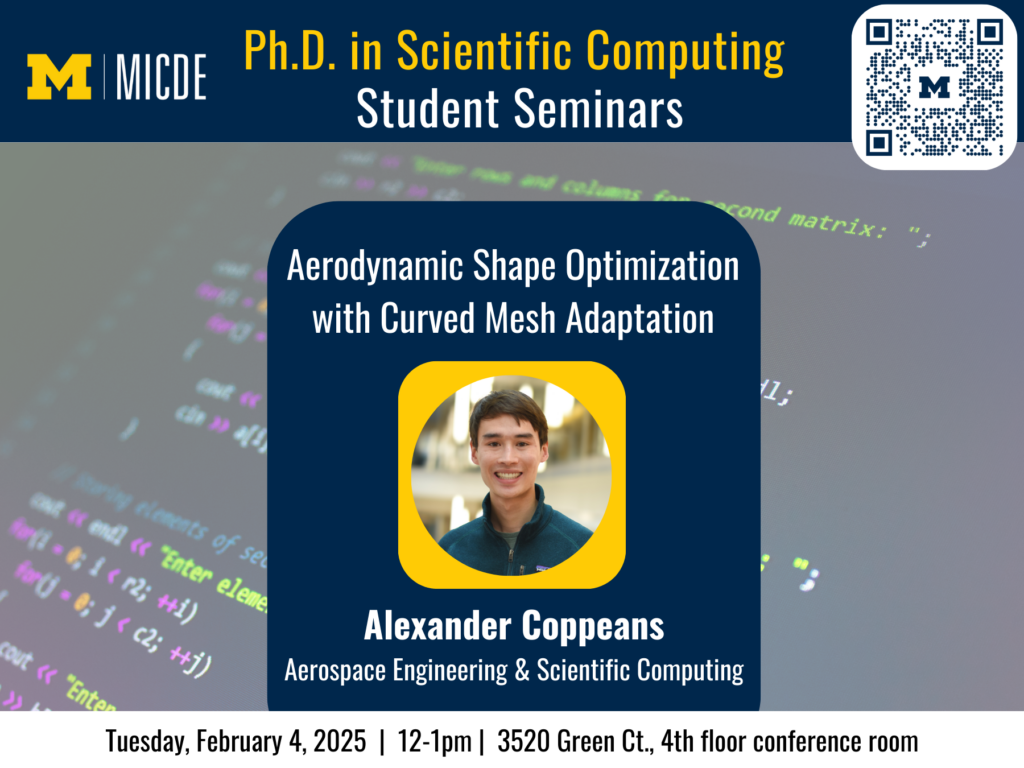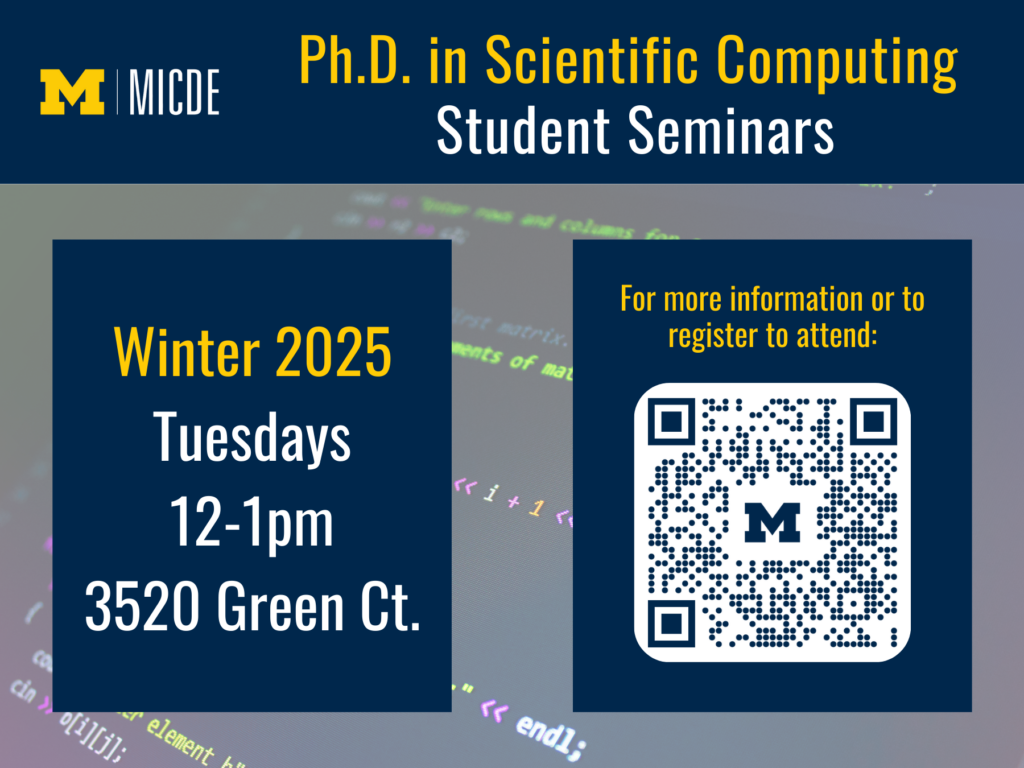Events

- This event has passed.
MICDE Ph.D. Student Seminar: Jeffrey Hatch and Jiadong Chen
April 9, 2024 @ 12:00 pm - 1:00 pm
Venue: Duderstadt Center – 1180
The MICDE PhD Student Seminar Series showcases the research of students in the Ph.D. in Scientific Computing. These events are open to the public but we ask that all attendees register so that we can prepare properly. If you have any questions, please email [email protected].
Register to attend this seminar
Jeffrey Hatch: An introduction to the many-body basis set amelioration method
Modeling the interaction of subatomic particles in chemical species has become a routine part of modern chemical research as this analysis can be used to find a system’s energy, thermodynamic properties and more. The algorithms that can accomplish this vary in their accuracy and computational cost, with more accurate methods generally incurring more cost. Additionally, the more subatomic particles present, the more costly the calculation will be. A computationally intensive family of methods known as select configuration interaction methods are generally thought of as the most accurate and most computationally expensive family of methods. However, due to their high cost, it is requisite that we investigate mechanisms of diminishing the cost while maintaining accuracy. The nature of one such method, incremental full configuration interaction (iFCI) lends itself to accurate extrapolations based on much cheaper levels of theory in smaller basis sets. This is known as the many-body basis set amelioration (MBBSA) method. The MBSSA method has be shown to reduce the cost of a given calculation by as much as 80% without loss in the accuracy of the calculation.
Jeffrey Hatch, Ph.D. candidate in Chemistry and Scientific Computing
Jeffrey is in the Zimmerman group in the chemistry department. He is interested in using HPC methods to improve quantum chemical calculations especially in the configuration interaction realm of electronic structure calculations.
Jiadong Chen: High dimensional phase diagrams: Engineering relative stability in 4-dimensions
Sequential learning algorithms based on Bayesian optimization are routinely being deployed for materials stability optimization in high-parameter spaces. We anticipate these optimization methods would perform better if they were built upon stronger priors, for example, as derived from the fundamental thermodynamics underlying the equilibrium behavior of materials. Here, we present a thermodynamics-based technique to optimize the relative stability of a materials in high-dimensional thermodynamic space, based on a new derivation of a generalized high-dimensional Clausius Clapeyron relation. Using this thermodynamic infrastructure, we design several pathways to enhance the relative acid stability of Mn-oxides versus its dissolved states for potential electrochemical catalyst application. We construct a 4-D Pourbaix diagram with pH, redox potential E, particle radius 1/R and a chemical potential μK as axis. By exploring the gradients of the high-dimensional phase boundaries, we derive first-principles insights that nano-sizing (1/R) and certain doping ions (μK) can stabilize some metastable Mn-oxides polymorphs, where 1/R decreases acid stability and μK increases it. Our high-dimensional thermodynamic framework is a general method to engineer relative stability in parameter spaces that leverage multiple forms of thermodynamic work.
Jiadong Chen, Ph.D. candidate in Materials Science and Engineering and Scientific Computing
Jiadong Chen is a 5th year PhD in materials science and engineering department, Wenhao Sun group, focusing on use computational and data-driven methods to predict materials stability and synthesis recipes.


